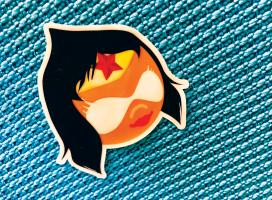The Women of the Drupal Community: Jennifer Babb

Collection :
Name: Jennifer Babb
Drupal.org ID: n/a
Location: Bend, Oregon
Job Title: Manager, Product Owner
“Come for the code, stay for the community” has been a steadfast motto of Drupal since its founding. People want to join the Drupal community to find a welcome space to share innovative ideas, take on new projects and challenges and contribute to an amazing open source CMS. However, bias still persists in the tech community as a whole, including within Drupal, and it is our responsibility to make the Drupal community a more inclusive and equitable place.
As part of Acquia’s Women of Drupal series, we are highlighting the stories of women from all backgrounds who have carved a path for themselves in STEM fields and have left an impact on Drupal whether that’s through code, mentorship, design, development, marketing or anything else. This month, we interviewed Jennifer Babb, Manager and Product Owner at Acquia
Jennifer has had a full and rich career in the web and Drupal space, including taking on a successful major organization CMS re-platforming to Drupal 6. She’s a true webmaster who's seen the evolution of digital experience and the dev community from grappling with HTML sites to designing sophisticated customer experiences with all the power that an open source tool like Drupal has to offer. Now at Acquia, she works along fellow Drupal experts to help all organizations migrate their sites more easily, especially with the release of Drupal 9 this year!
Jennifer shares her journey from travel brochure writing to learning old school HTML to diving head first into Drupal. Her story shows that there is no one-size-fits all career progression in tech, and that no matter if you’re working from home, taking time off to spend with family or switching industries or specialities, the Drupal community always has a place where you can make an impact.
How did you get your start in tech?
After college I lived in Eastern Europe for a while, in the early 1990s, writing and editing guides to different Baltic cities. Initially they were print publications sold in kiosks. Then my friend Kim Fisher, an Americorps volunteer in Vilnius at the time and one of the most entrepreneurial people I’ve ever known, pitched to the owners that we put the city guides on the World Wide Web. She and I taught ourselves HTML, marked up the Vilnius guide’s content and then saved the whole thing to a disk, which we delivered by hand to students at the University of Vilnius who saved it to their server.
How did you first discover Drupal?
When I came back to the United States, to Oregon, I looked for a job as a writer who knew “web stuff,” but nothing like that existed yet. I worked instead as a technical writer for a small software company and convinced them I could update their brochure-ware site. Eventually I found a place as a web developer at Tektronix, which had a site built with duct tape and string (HTML and perl scripts!). I was first a developer and then webmaster.
Then I took time off when my children were young. But when Tektronix decided to adopt Drupal 6, I returned full time to work on the migration. We’d been wanting a CMS for a long time, and Drupal was very cool.
What Drupal function, project or contribution are you working on and/or most proud of?
It was really the former writer in me who was excited for Drupal. Once Tektronix had D6 running, I switched to technical project management so I could work with content owners. My favorite project involved translating tek.com into 7 languages. It was so elegant. We had one set of templates and content types running all the sub-domains, so they all mirrored the English-language site, and every month we ran an export-translate-re-import process to keep the content in sync. We built it all in D6, and then a few years later migrated it to D8, which was its own interesting challenge.
What are some challenges you've faced, technically or career-wise?
Just as my career was taking off, I changed direction abruptly. I had a son; moved to a remote part of Oregon; became a stay-at-home mom; had a daughter; and only then went back to a simpler version of my job as a contracting telecommuter. In those days, remote work was nearly unheard of. For many years I was the only remote person in the department, and I was constantly having to prove both that the job could be done remotely and that I could do it. I honestly loved the challenge of working remotely, but such frequent justification wore on my self-confidence.
What inspires you? What keeps you passionate about your work?
I love working with engineers. I like the way they think. I like working with engineers to build tools for other engineers (or developers or DB administrators or etc.) -- they can be brutally forthright.
What are some other aspects of the Drupal community that you're involved in?
At Acquia I’m the product owner for the Cloud Platform user interface and its API, and as such I’m helping to bring out the beta version of Acquia Migrate: Accelerate, a tool that’ll ease migrations from Drupal 7 to Drupal 9. It’s been fun, and an honor, to be on a team with Angie Byron.
How do you think we can help empower women in tech and work toward better gender inclusion?
We need to see other women mastering all aspects of technology and playing all roles at tech companies. The stereotype that all programmers are twenty-something white males was never accurate, and we need to keep knocking that down. Women need to be visible and vocal.
What advice would you give your younger self or someone who is just starting out?
You are a whole person, not segmented into a 9-5 self and an after-5 self. (Of course not every job is 9-5, but you know what I mean). Bring that integrated self to all your endeavors. Don’t suppress it to fit who you think people are expecting you to be in a given situation. That’s how stereotypes get perpetuated.
---
To learn more about Jennifer and her team’s impressive work to launch Acquia Migrate: Accelerate and help members of the community migrate to Drupal 9 5X faster, check out our tutorial or download the e-book: Why It’s Time to Migrate to Drupal

